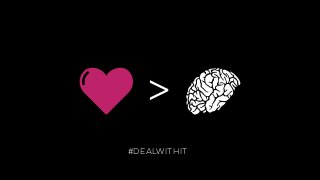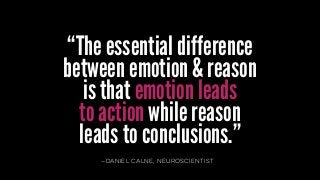"In God we trust. All others bring data." This is the mantra of many an executive, and the reason why so many stories told in a business setting begin and end with data and charts. The problem is that our brains are far more influenced by emotion than we realize. Here's the simple neuroscience that EVERY speaker, entrepreneur, marketer —or anyone trying to influence a decision—should know before they make a case that appeals to the "wrong organ".

















